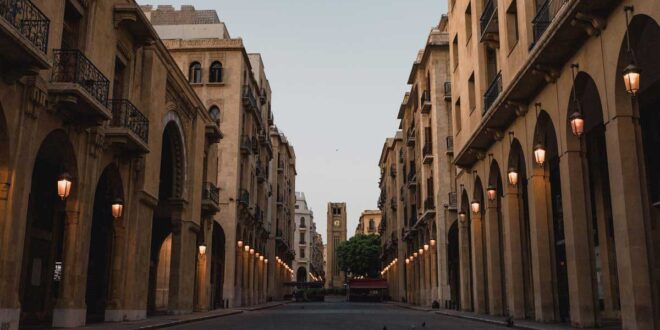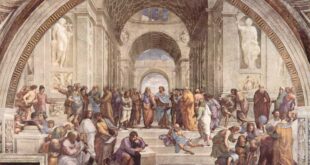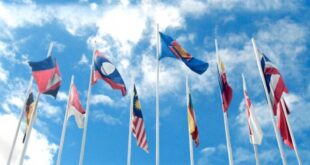Elie El Khoury
As the pandemic continues to constrain economic activity across the World, it has a multiplier effect on the free-fall of the Lebanese economy. In fact, Lebanon’s economic conditions continue to worsen, as the country’s economic, fiscal and financial crises remain unchecked, while consumer and investor confidence is at its lowest.
Lebanon’s multiple crises are due to structural deficiencies within its economic, institutional, and governance systems. The authorities did not present nor work on a concrete economic vision for the Lebanese economy over the past thirty years, leaving the economy without clear objectives and policies. The economy ended up relying on remittance inflows that were financing the government deficit, the peg of the Lebanese pound against the US dollar, and imports. With a weak infrastructure, the industrial and agricultural sectors could not grow nor present opportunities, making the services sector, along with real estate and tourism, the main drivers of growth.
However, despite a strategic location on the Mediterranean, Lebanon’s position north of its enemy country, and bordered by Syria to the north and the east, which has unstable relations with Lebanon, raises the country’s geopolitical risks and continuously disrupts its stability; not to mention the spillover of the Syrian war on Lebanon. Political and geopolitical stability is a key requirement for the tertiary sector, Lebanon’s main economic sector, to function properly. As such, Lebanon’s location hindered its stability to achieve sustained growth in the form that was agreed upon by its ruling class. Lacking concrete growth for some years, along with the erosion of confidence in the political and financial systems, and the default of the government, the remaining lifeline for the population is but a diminishing amount of foreign currency reserves at Banque du Liban, used to subsidize the imports of the people’s basic needs.
Most experts, along with the international community, continue to call for the implementation of reforms across the public sector, including in the power sector, the port, as well as on the fiscal and monetary levels, and in the banking sector. However, the main impediment for reforms is a lack of political will, reflecting a dysfunctional political system that continues to yield in renewed political deadlocks. Lebanon’s political system had remained slightly unchanged since the end of the civil war, as the country continued to muddle through from one crisis to another.
The lack of political will for reforms is currently at its highest levels, as the authorities remain unable to form a government since August 2020, when the last government resigned following the explosion at the Port of Beirut. The political deadlock coincides with a depreciation of the Lebanese Pound depreciated from about LBP7,000 against the US dollar in August 2020 to about LBP13,000 per US dollar in March 2021, and relative to LBP1,507.5 per US dollar before the protests in October 2019.
The complexity of this political deadlock can be analyzed in three different layers.
On the domestic front: the ruling-Free Patriotic Movement (FPM) and the Future Movement are facing an uncertain outlook in the 2022 elections, as their base voters are narrowing. Knowing that the next government should be the one to put the country on a reform path, and to stop the current deterioration across all sectors in the country, both parties seem interested in being part of the new government, in order to build on quick wins, while saving the remaining portions of their supporters in the upcoming elections. As such, the names and allegiance in this government are critical, it is a vital issue for both parties, which makes concessions harder to make. Each movement is testing the other’s endurance and capacity to maintain its current position and requirements for the upcoming government, at the expense of the nation and its population.
On the National level: some analysts and journalists have described the current free fall of the Lebanese economy, institutions, political system, and the political deadlock as an operation of “thermal dissociation” of the State. Under this perspective, the current deadlock intends to highlight the dysfunctional political system. The deadlock, in this case, is not only a result of the system but a catalyst that fastens the process towards a new founding conference that would change the shape and the foundation of the current system. Speculations are skewed towards a tripartite – where the governance system would be divided largely into three factions, Christian, Shia, and Sunni, rather than Christians and Muslims under the current system. Such a system would benefit mostly Shiite parties, as they could increase mainly their executive power, while reducing the power and representation of Christian factions. In that case, Shiite parties would probably exchange their paramilitary structure for a better representation and protection under a new constitution. In parallel, the calls for an alternative system have also increased, it is a non-confessional system. Such a proposition is tricky, as, without an understanding of the underlying values of this system and its proper mindset, some factions would override the new system by pushing their supporters and affiliates to vote based on a confessional mindset, given that most parties represent specific confessional communities. So without the proper awareness about the actual goal of the system, and given the skyrocketing poverty and unemployment rate, a high level of clientelism, and no rule of law, voters will be easily manipulated, while other less conservative and organized parties, with less direct authority on their base voters, would be at a disadvantage in the elections, paving the way for large and better-organized conservatives and hardliners to seize control. This system can be a tool to hijack the constitution and change the fundamental pillars on which this state was built.
On the International level: As the United States and Iran get closer to sit at the negotiation table, Iran has been gathering more cards to add to the table. Iran continued to increase its uranium enrichment levels and limited in February the International Atomic Energy Agency’s access to some nuclear sites. These actions seemed like an attempt to bring Washington sooner to the negotiations. In addition, Iran has by now several cards to play that are beyond its national borders, and are not directly related to the nuclear deal. Tehran has a strong and direct say in the formation of governments, as well as in national and strategic decisions both in Lebanon and in Iraq. Among the dishes that Iran could serve at the negotiations table from Lebanon’s kitchen are facilitating the formation of a government in Lebanon, lowering the constraints for talks with the International Monetary Fund, and easing the issues related to the demarcation of Lebanon’s borders. These represent easy concessions that Iran could offer before tackling the main issues of the 2015 Joint Comprehensive Plan of Action.
A breakthrough agreement that produces a government in the short term would probably be an unbalancing force to the current status quo over the three dimensions, resulting in potential winners and losers.
Iran tightened its grip on Lebanon through Hezbollah. In turn, Hezbollah has an asymmetric advantage on other parties given its paramilitary wing, which cripples any attempt towards a strong State as it strikes directly Thomas Hobbes’ “monopoly on violence”, maintaining an ongoing fear of a “war of all against all”. In addition, Hezbollah has been able to expand politically through its alliance with the Christian ruling-FPM. Their alliance was implicitly accepted, despite the large difference between both movements’ political and economic visions, mainly due to the narrative of Lebanon being the “shelter for minorities” in the Middle East, where minorities mainly refer Christian, Shiite, and Druze communities. This tool is the theoretical foundation that used to bring the ruling Christian and Shiite factions closer, building on fear from the large Sunni majority in the Middle East and from Pan-Arabism.
However, the signs of a vacuum of power on the Christian and Sunni level, as well as the trajectory towards more openness in the Arab world, especially in the main Sunni countries of the Gulf Cooperation Council show a strong potential for breaking the “shelter for minorities” narrative.
Lebanon’s confessionalism defied Adam Smith’s Invisible Hand in the heart of a “free market” economy, as every faction (religion) would seek its own benefits, without creating any indirect economic and social benefit to the country. Mainly it’s the elite class of every confessional community that continuously benefits from the system, even at the expense of people from the same faction. It is a system built on zero-sum games. Leaders continue to manipulate public opinion, mainly their followers, through geopolitics of religion, the art of keeping one scared of the other.
 Geostrategic Media Political Commentary, Analysis, Security, Defense
Geostrategic Media Political Commentary, Analysis, Security, Defense





